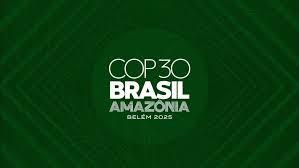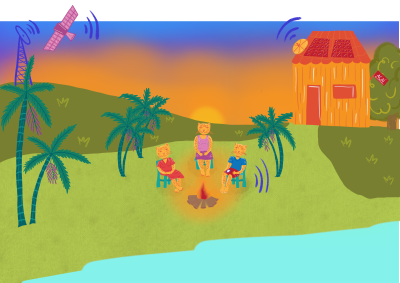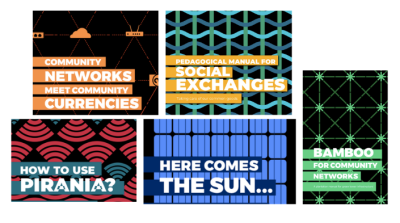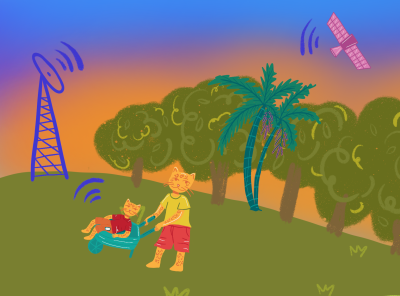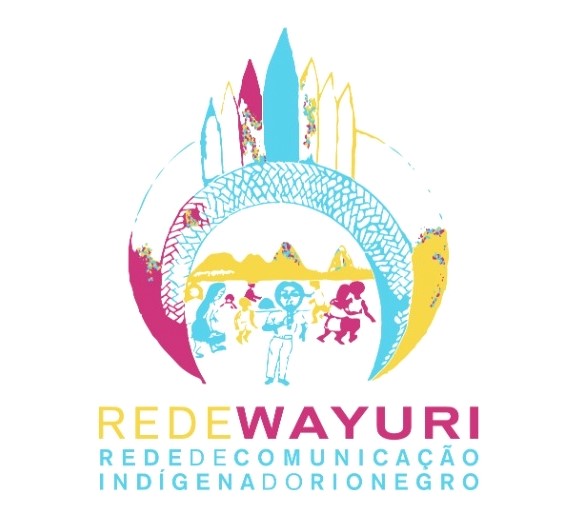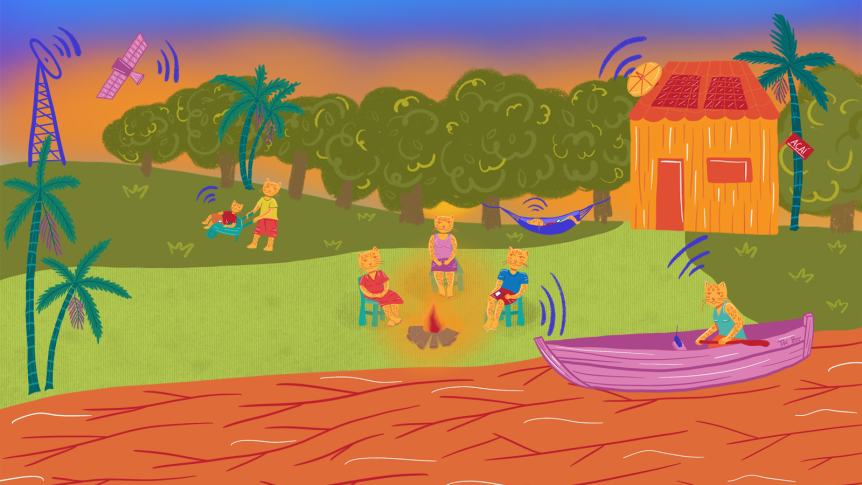
>> Also available in Portuguese.
The city of Belém do Pará will host the 30th edition of the Conference of the Parties (COP30) this year, the largest global United Nations forum on climate change. Belém do Pará is a lively metropolis with almost 1.5 million inhabitants in Brazil's Amazon region. The socio-environmental role that the Amazon biome plays extends far beyond Brazil (which is home to 60% of it). It represents more than half of our planet's remaining tropical forests, comprising its greatest biodiversity.
The northern region of Brazil, where Belém do Pará and the Brazilian Amazon biome are located, has the worst connectivity among the five regions of Brazil, with 19% of its population without internet access. Of those who are connected, 89% do not have meaningful connectivity, one that is adequate, sustainable and aligned with their projects and needs. A digital infrastructure that could help preserve this region's ecological richness and support local communities remains largely absent, making digital inclusion a critical challenge and highlighting the potential of community-centred connectivity initiatives (CCCIs).
The Local Networks (LocNet) initiative brings CCCIs into the debate on connectivity in the context of socio-environmental justice, highlighting the prominent role that it plays. While connectivity can assist with socio-environmental protection and plays a central role in enabling processes for reporting human and environmental rights violations, traditional connectivity is often marked by its negative socio-environmental impact, used to maintain its infrastructure by illegal mining to facilitate the production of components for devices, extensive use of natural resources to power data centres and widespread pollution.
Connectivity also presents risks on the users’ side. As a communication tool, it can expose territories and their defenders, making them vulnerable to the spreading of misinformation, manipulation of public debate and democracy, and even recruiting and protecting perpetrators of environmental crimes, such as the ones mentioned above. The question is whether community-centred connectivity can tip the balance – making connectivity serve environmental justice while enabling fair, context-specific economic activities for those living in the Amazon.
LocNet distinguishes CCCIs from traditional operators and infrastructure through a set of core principles, that help to guide the work, including values such as community focus, participation and the strengthening of community well-being. The initiative also calls for aspirational principles for a CCCI, one of them is to be environmentally aware:
“Design[s] the infrastructure or services in a way that contributes to the preservation of the environment and biodiversity of the territory, and with care for communities in those territories.”
These principles are also aligned with the self-affirmation charter of Community Networks in Brazil, reviewed in October 2024, which states that the members of the “National Committee of Community Networks” share the letter to, amongst other goals:
Express fundamental values that unite us in our diversity, such as autonomy, good living, preservation of biomes, collaboration, empathy, alliances between social struggles, and the defence of territories. Also, community appropriation of social and free information and communication technologies, the valorisation of ways of life and local knowledge, and the multicultural existence of Brazilians.
Defend digital autonomy in dialogue with the preservation of biomes.
At COP30, we aim to learn from local socio-environmental actors and movements about how connectivity shapes their realities and to support technological practices that enhance their work. Therefore, we take this opportunity to embark on a journey that leads us to identify how the structuring principles of community networks and those of socio-environmental justice align and feed into each other.
To this extent, we are initiating a series of activities to bridge the links between the agendas of digital inclusion and environmental justice, from the experiences of local communities. For this purpose we have invited Thiane Neves, from Perpetuar Institute and Transfeminist Network of Digital Care, and Juliana Albuquerque and Ray Baniwá, communicators from Rede Wayuri, to highlight together the connectivity agenda of COP30 and share reflections and contents from this event, the Cúpula dos Povos and other community spaces focused on environmental justice that are being held during November 2025 in Belém do Pará.
To kick off this collaboration, we begin with Thiane's reflections on this global event taking place in her hometown, exploring what COP30 means locally for connectivity, infrastructure, racism and socio-environmental justice.
Throughout COP30, this collaborative space will be fed by multimedia coverage from Rede Wauyri, shared across social media platforms including Mastodon, Bluesky, Facebook and LinkedIn. This coverage will spotlight community voices and ground-level perspectives often missing from global climate discussions.
As part of this effort, we are also resharing a set of practical manuals developed by LocNet's Communities of Practice. These guides show how CCCIs can align with socio-environmental best practices, including the use of photovoltaic energy, bamboo construction techniques, circular economies and community currencies – demonstrating that sustainable connectivity is both possible and replicable.
These first steps mark the beginning of a journey to strengthen the connections between digital inclusion and environmental justice. By centring community voices and experiences, we aim to amplify the positive impact that meaningful connectivity can provide – empowering communities to defend their territories while protecting them from the potential harms that connectivity could bring. Community-centred connectivity focuses goals on care for environmental justice, demonstrating that another form of connectivity is possible: one that serves both people and planet.
Ilustration: Thay Petit
